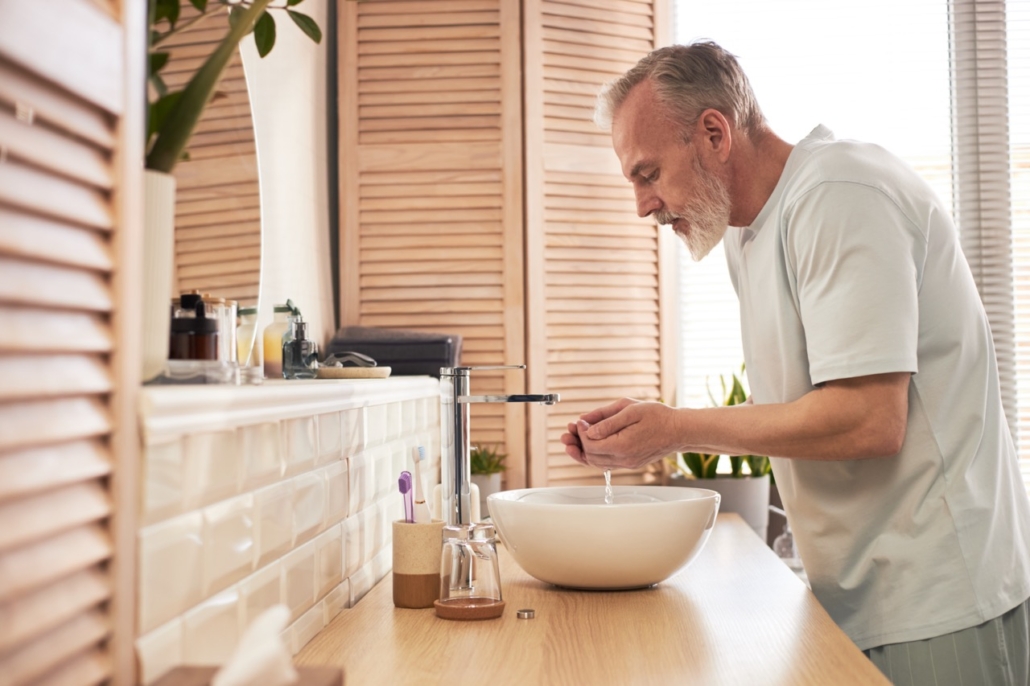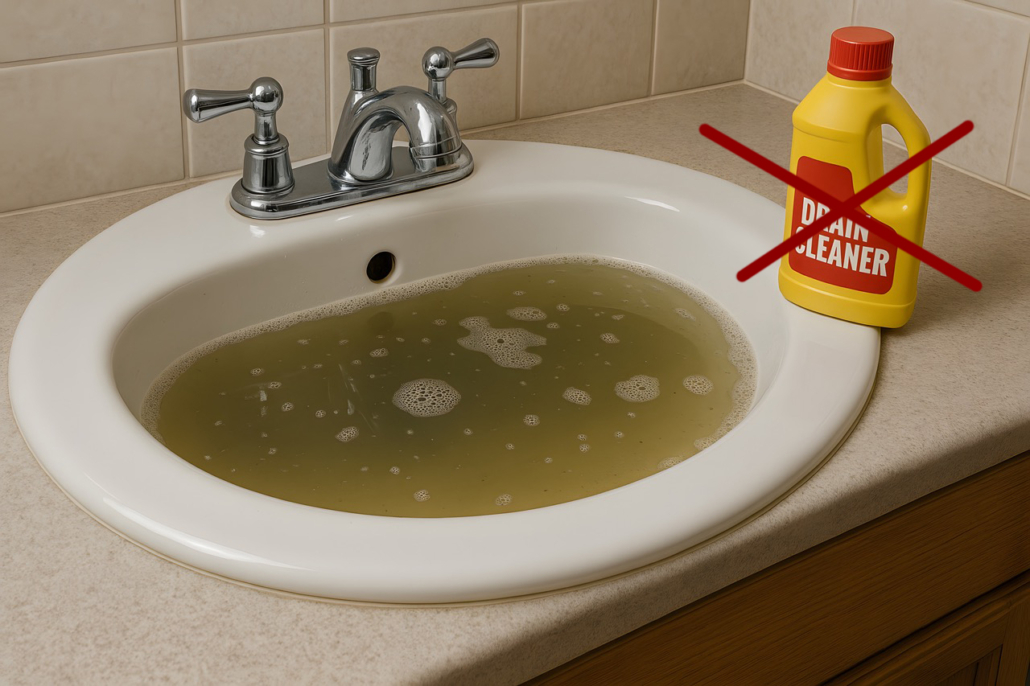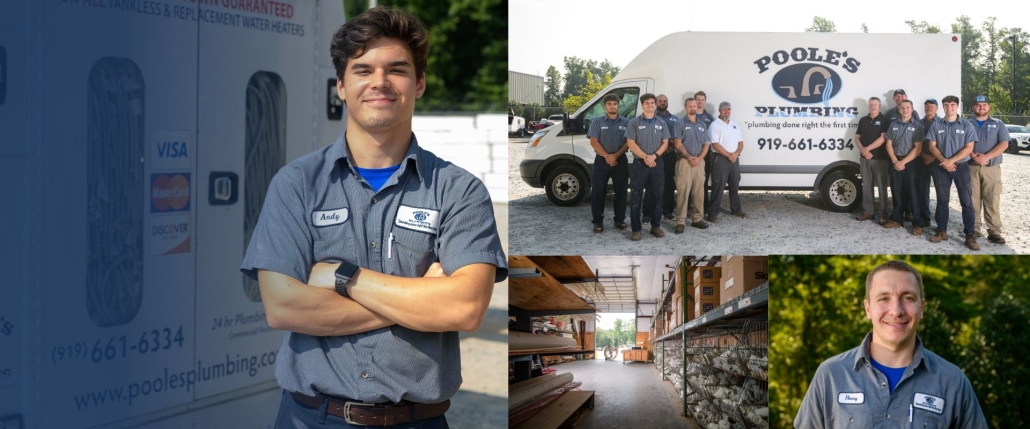Standing Water in My Sink? Causes, Solutions, and When to Call a Pro
Standing Water in My Sink? Causes, Solutions, and When to Call a Pro — A leaky drain or standing water in your sink may quickly turn from a minor annoyance into a major headache or disaster. Whether you’re tackling slow drainage in the bathroom, water pooling in the kitchen sink, or leaks that won’t stop, it’s essential to address these issues early. By understanding the common causes of clogged or leaky drains, knowing how to fix them, and implementing regular maintenance, you can save time, money, and prevent larger plumbing problems.
Here’s everything you need to know about leaky drains and standing water—why it happens, what you can do about it, and when it’s time to call in the professionals.
Why would I have Standing Water in My Sink?
Water that won’t drain properly is a sign that something is obstructing your pipes or preventing a smooth flow. If water is standing for hours after using the sink, it’s worth investigating the underlying issue. Here are some of the most common causes:
1. Clogged Drains
Over time, food particles, soap residue, hair, cooking grease, oils, and many other debris build up in your pipes. This accumulation narrows the passage for water, eventually leading to slow drainage or complete blockages.
For kitchen sinks, grease and cooking fats are often the culprits. Bathroom sinks, on the other hand, are highly prone to blockages caused by hair, toothpaste, and soap scum.
2. Leaky Pipes and Seals
Leaks in the drainpipe can cause standing water to appear mysteriously underneath your sink, reducing water pressure and leading to inconvenient puddles. Aging washers, loose joints, or cracks in the pipe are key contributors.
3. Poor Installation or Design Issues
Plumbing installations need to follow specific design standards to ensure proper drainage. Improperly aligned pipes, incorrectly sized drains, or faulty slope angles during installation can result in flow issues.
4. Airflow Issues
Vent stack blockages or an improperly vented plumbing system can lead to a vacuum in the pipes, which disrupts water flow. This adds pressure to your drainage system, slowing it down or causing gurgling sounds from your sink.
5. Hard Water Build-Up
If you live in an area with hard water, mineral deposits can collect along the walls of your pipes over time. This reduces the diameter of the pipe and restricts water flow.
6. Larger Plumbing System Problems
Standing water could be the first indication of issues further down the line, such as a backed-up sewer or more extensive plumbing failure.
How to Solve Common Drainage Problems
Once you identify the potential causes, you can explore solutions to get your drains flowing smoothly again. Here’s what you can try:
1. DIY Fixes
- Remove Clumps by Hand: Use a flashlight to inspect the interior of sink drains for clogs you can reach. Gloves, tweezers, or a plastic drain snake can help remove hair or gunk.
- Use a Plunger: When you have a minor blockage, a sink plunger may create enough suction to dislodge clogs. Ensure you cover any overflow holes with a wet cloth for maximum suction power.
- Try a DIY Drain Cleaner: By pouring a mixture of vinegar and baking soda directly into your sink and down the drain, then follow with boiling water. This natural combination helps break down residue without damaging your pipes. (Avoid using store-bought chemical cleaners, as they can cause long-term pipe damage.)
- Unclog Traps: Many clogs collect in the U-shaped trap under your sink. Shut off the water supply, place a bucket underneath, then unscrew the P-trap to clean it out.
2. Address Leaks
- Replace Seals or Washers: Check for dried-out gaskets or loose connections under the sink. Tightening joints or replacing faulty parts can often stop a leak.
- Apply Plumber’s Tape: Small leaks can sometimes be patched temporarily by applying plumber’s tape around threaded pipe joints. However, this is only a stopgap measure—underlying issues need proper repair.
3. Fix Ventilation Problems
- If your system has poor airflow, restoring vent stack functionality is crucial. Clear blockages in your home’s plumbing vents, or hire a professional plumber for more complex fixes.
Regular Maintenance to Keep Drains Flowing
Prevention is always better (and cheaper!) than the cure. Maintaining your plumbing system regularly can help you avoid costly repairs down the road. Here are some maintenance tips that Poole’s Plumbing recommends:
- Watch What Goes Down the Drain
Avoid dumping grease, coffee grounds, and fibrous foods in the kitchen sink. Use a strainer to catch larger debris and hair in the bathroom. A little effort here saves a lot of stress later. - Flush Drains Regularly
Once a week, run hot water through your sink to keep grease and debris moving. For more challenging issues, flush the drain with a vinegar and boiling water mixture every month. - Clean Pop-Up Sink Stoppers
These handy tools often trap hair, soap, and toothpaste gunk. Remove and clean them every couple of weeks to prevent blockages from forming. - Inspect Pipes Periodically
By checking under sinks for leaks or signs of corrosion, especially if your plumbing is older. Catching small cracks or drips early can prevent larger issues. - Schedule Annual Plumbing Check-Ups
A professional inspection can identify invisible problems like pipe corrosion or early blockages. By doing this simple step, you can extend the lifespan of your plumbing system.
When to Call a Professional: “Standing water in my sink”
Knowing when a plumbing issue is beyond a DIY fix is an essential part of responsible home maintenance. Here’s when you should contact a plumber:
- Persistent Clogs: If the water in your sink keeps standing despite multiple cleaning attempts, you likely have a blockage further in the system.
- Visible Pipe Damage: Cracks, rust, or structural wear on pipes signal it’s time for expert repairs.
- Leaking Drainpipes: Minor drips might seem harmless, but having an unseen leak can lead to water damage, mold, and costly repairs.
- Unpleasant Sewer Odors: A foul smell coming from your drains could mean sewer line problems, which require immediate professional attention.
- Continuous Gurgling or Bubbling Sounds: These could indicate air pockets caused by venting or severe line blockages.
- Flood Risks: If you notice backed-up sinks and toilets throughout the house, it could be a clear sign of sewer line trouble—a situation that needs fast professional intervention.
Poole’s Plumbing Is Here to Help
When you’re dealing with leaky drains or standing water in your sink, trust the experts at Poole’s Plumbing to handle the problem quickly and effectively. We’ve been Raleigh’s most trusted name in plumbing since 1999, offering reliable service with a “done right the first time” guarantee. Whether it’s clogs, leaks, or larger system repairs, our seasoned team is ready to assist 24/7.
Standing water in your sink? Don’t wait until the problem gets worse. Give us a call today and experience the Poole’s Plumbing Team difference—professional, dependable, and always customer-focused.
Other great guides:
A Comprehensive Guide to Water Heater Maintenance: Winter is Coming!
Common Plumbing Issues and how to fix them







